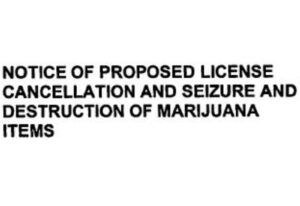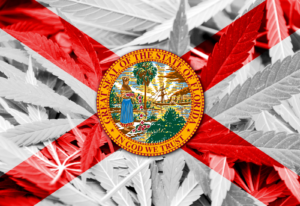Earlier this week, I canvassed the key cannabis bills enrolled at the outset of the Oregon legislative session. I mentioned that HB 4016 was sucking up all of the oxygen due to its Oregon cannabis license moratoria, including the retroactive moratorium on new producer applications effective January 1, 2022. That retroactivity concept came out of the blue. The morning I published my post, two further amendments to HB 4016 were introduced. Those amendments would extend the moratoria to all license types, also retroactive to January 1, 2022 for new applications. The amendments also came out of the blue.
Here is the letter signed by industry law firms, including ours, sent on Tuesday at the outset of the legislative session. You will see the letter doesn’t take a position on whether there should be a moratorium on producer licenses. That is a wide-ranging and controversial debate. It gets into issues like the appropriate degree of state intervention in private enterprise; protectionism more generally– including in exceptional circumstances (federal illegality; an un-exportable product); the social equity cost of creating additional barriers to entry (an issue where OLCC is currently under audit); expectations actually and allegedly created by state actors; etc.
Rather than deal with all of that, the letter focuses on the retroactive provisions in HB 4016. It requests that OLCC work with the legislature “to facilitate revisions to House Bill 4016 removing retroactive application of the moratorium.” It’s unknown whether OLCC will take heed, or how this will play out. OLCC’s official position seems to be neutral on retroactivity, although its Executive Director stated in September that “we will be making the recommendation to the Legislature and the governor to continue [the] moratorium on production for two more years.”
On Wednesday morning, I attended the kick-off committee meeting for the legislature and interested parties on HB 4016. Other cannabis bills and topics were covered (namely, hemp property liens and forfeiture), but only in cursory fashion. Industry lobbyists and business owners testified passionately in support of HB 4016– including its retroactive aspects. One business owner lamented that over 400 producer license applications alone had been filed since January 1. He and others testified that with the regulated business environment more challenging than ever, allowing a further influx of licensees would exacerbate what already feels like a bloodbath.
Notably, OLCC did not testify on Wednesday. The Commission simply stood by for any questions on technical aspects of the “industry bill.” Also notably, there was no recorded opposition to HB 4016 on behalf of social equity interests– or anyone. On a more technical note, the industry lobby advocated for removing the “dash 1” from HB 4016. This was proposed to keep HB 4016 away from the ways and means committee. (For the uninitiated, ways and means is where a proposed law’s fiscal impact is studied, in conjunction with the statewide budget. It’s often a graveyard, especially in short sessions.)
A second public hearing for HB 4016 and related matters will be held on Monday, February 7, 2022. Remote testimony has ended, but written testimony may still be submitted through 8 a.m. on February 8, 2022 at this link. Anyone potentially affected by HB 4016 and the proposed cannabis license moratoria — or any of the other cannabis bills — would be well served to spend a few hours this weekend on testimony.
So that’s it for now. We plan to check back in at the end of the session (after March 8) or when HB 4016 definitively passes or fails—however it may read at that time.
























